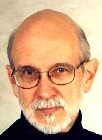Naturalistic pantheism, also known as scientific pantheism, is a form of pantheism. It has been used in various ways such as to relate God or divinity with concrete things, determinism, or the substance of the universe. God, from these perspectives, is seen as the aggregate of all unified natural phenomena. The phrase has often been associated with the philosophy of Baruch Spinoza, although academics differ on how it is used. Natural pantheists don’t believe in any God, though they do worship the universe as if it was one. They believe in science, hence the name scientific pantheist, instead of a deity.

Paul Johannes Tillich was a German-American Christian existentialist philosopher, religious socialist, and Lutheran theologian who was one of the most influential theologians of the twentieth century. Tillich taught at German universities before immigrating to the United States in 1933, where he taught at Union Theological Seminary, Harvard University, and the University of Chicago.
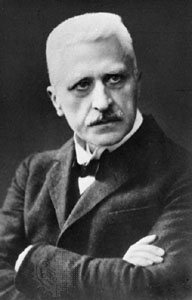
Rudolf Otto was an eminent German Lutheran theologian, philosopher, and comparative religionist. He is regarded as one of the most influential scholars of religion in the early twentieth century and is best known for his concept of the numinous, a profound emotional experience he argued was at the heart of the world's religions. While his work started in the domain of liberal Christian theology, its main thrust was always apologetical, seeking to defend religion against naturalist critiques. Otto eventually came to conceive of his work as part of a science of religion, which was divided into the philosophy of religion, the history of religion, and the psychology of religion.

Bernard MacDougall Loomer was an American professor and theologian. Loomer was longtime Dean of the University of Chicago Divinity School and a leading proponent of Process Theology.
Progressive Christianity represents a postmodern theological approach, and is not necessarily synonymous with progressive politics. It developed out of the liberal Christianity of the modern era, which was rooted in the Enlightenment's thinking. Progressive Christianity is a postliberal theological movement within Christianity that, in the words of Reverend Roger Wolsey, "seeks to reform the faith via the insights of post-modernism and a reclaiming of the truth beyond the verifiable historicity and factuality of the passages in the Bible by affirming the truths within the stories that may not have actually happened."
Transtheism refers to a system of thought or religious philosophy that is neither theistic nor atheistic, but is beyond them. The word was coined by either theologian Paul Tillich or Indologist Heinrich Zimmer.
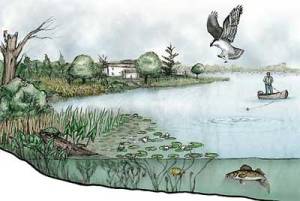
Religious naturalism is a framework for religious orientation in which a naturalist worldview is used to respond to types of questions and aspirations that are parts of many religions. It has been described as "a perspective that finds religious meaning in the natural world."
The problem of religious language considers whether it is possible to talk about God meaningfully if the traditional conceptions of God as being incorporeal, infinite, and timeless, are accepted. Because these traditional conceptions of God make it difficult to describe God, religious language has the potential to be meaningless. Theories of religious language either attempt to demonstrate that such language is meaningless, or attempt to show how religious language can still be meaningful.
The Institute on Religion in an Age of Science (IRAS) is a non-denominational society that promotes and facilitates the ongoing dialectic between religion and science. The Institute has held annual week-long conferences at Star Island in New Hampshire since 1954. The conference attracts about 250 members and non-members each year. The 1964 conference, for example, was attended by 215 conferees, with speeches by figures including Theodosius Dobzhansky.
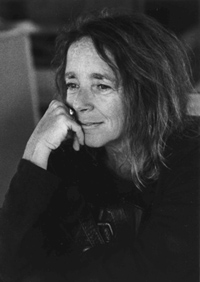
Ursula W. Goodenough is a Professor of Biology Emerita at Washington University in St. Louis where she engaged in research on eukaryotic algae. She authored the textbook Genetics and the best-selling book The Sacred Depths of Nature and speaks regularly about religious naturalism and evolution. She contributed to the NPR blog, 13.7: Cosmos & Culture, from 2009 to 2011.

Robert S. Corrington is an American philosopher and author of many books exploring human interpretation of the universe as well as biographies on C.S. Peirce and Wilhelm Reich. He is currently the Henry Anson Buttz Professor of Philosophical Theology at Drew University in Madison, New Jersey. Before that he was a professor at Pennsylvania State University. He is a Senior Fellow of the American Institute for Philosophical and Cultural Thought.
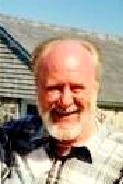
Philip Hefner is a professor emeritus of systematic theology at the Lutheran School of Theology at Chicago.
Ralph Wendell Burhoe was an important twentieth-century pioneer interpreter of the importance of religion for a scientific and technological world. He was awarded the Templeton Prize in 1980.
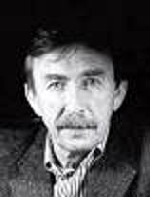
Loyal D. Rue is an American philosopher of religion. He is a professor emeritus of religion and philosophy at Luther College of Decorah, Iowa. He focuses on naturalistic theories of religion and has been awarded two John Templeton Foundation fellowships. He has been for many years a member and lecturer at the Institute on Religion in an Age of Science (IRAS).

Karl E. Peters is a Professor Emeritus of Religion at Rollins College, Winter Park, FL, and former adjunct professor of philosophy, University of Hartford, Hartford, CT and adjunct professor of religion and science, Meadville Lombard Theological School, Chicago. He also is the former editor and then co-editor of Zygon: Journal of Religion and Science, and is a founder, organizer, and first President of the University Unitarian Universalist Society in central Florida. His scholarly research and teaching focuses on issues in science and religion, including the concept of God and evolution, epistemology in science and religion, world religions and the environment, and religious and philosophical issues in medicine.
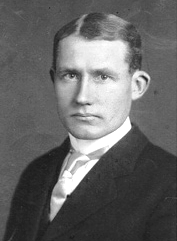
Henry Nelson Wieman (1884–1975) was an American philosopher and theologian. He became the most famous proponent of theocentric naturalism and the empirical method in American theology and catalyzed the emergence of religious naturalism in the latter part of the 20th century. His grandson Carl Wieman is a Nobel laureate, and his son-in-law Huston Smith was a prominent scholar in religious studies.

Spiritual naturalism, or naturalistic spirituality combines a naturalist philosophy with spirituality. Spiritual naturalism may have first been proposed by Joris-Karl Huysmans in 1895 in his book En Route.
Coming into prominence as a writer during the 1870s, Huysmans quickly established himself among a rising group of writers, the so-called Naturalist school, of whom Émile Zola was the acknowledged head...With Là-bas (1891), a novel which reflected the aesthetics of the spiritualist revival and the contemporary interest in the occult, Huysmans formulated for the first time an aesthetic theory which sought to synthesize the mundane and the transcendent: "spiritual Naturalism".

Gordon Dester Kaufman was an American theologian and the Mallinckrodt Professor of Divinity at Harvard Divinity School, where he taught for over three decades beginning in 1963. He also taught at Pomona College and Vanderbilt University, and lectured in India, Japan, South Africa, England, and Hong Kong. Kaufman was an ordained minister in the Mennonite Church for 50 years.

Donald Allen Crosby is an American theologian who is professor emeritus of philosophy at Colorado State University, since January 2000. Crosby's interests focus on metaphysics, American pragmatism, philosophy of nature, existentialism, and philosophy of religion. He is a member of the Highlands Institute of American Religious and Philosophical Thought and has been a leader in the discussions on Religious Naturalism.
Willem Bernard "Wim" Drees is a Dutch philosopher. As of the 1st of November 2014 he is professor of philosophy of the humanities at Tilburg University in the Netherlands. From 2008 until 2018 he was the editor-in-chief of Zygon, Journal of Religion & Science and professor of philosophy of religion at Leiden University, the Netherlands.
